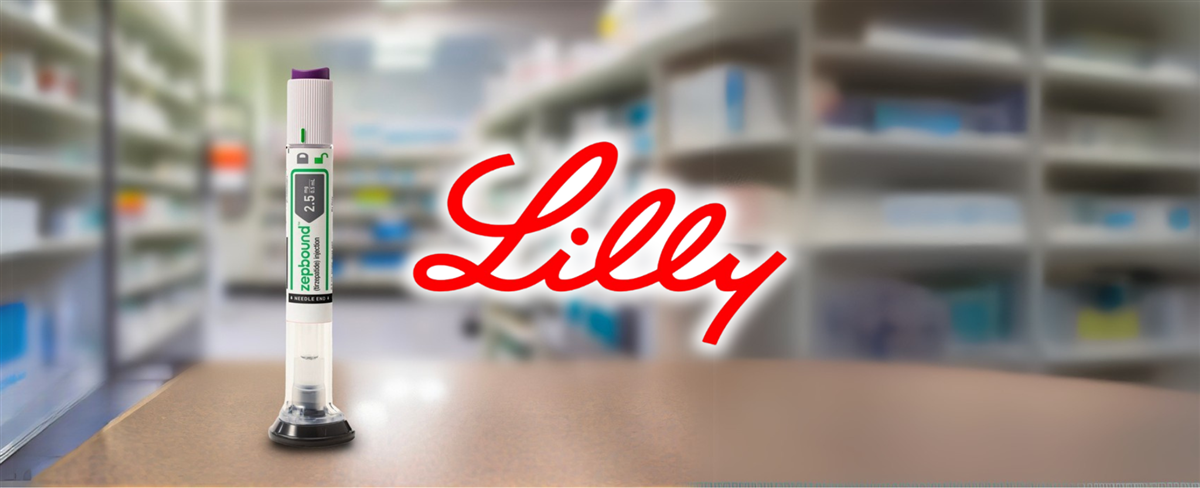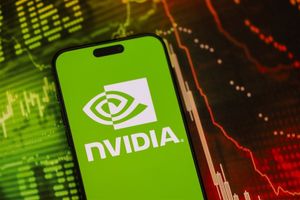
The world’s largest pharmaceutical stock, Eli Lilly and Company (NYSE: LLY), recently had its worst day in a long, long time. On May 1, Lilly reported Q1 earnings. Afterwards, shares got beaten down by almost 12% in one day, marking the biggest single-day decline in the stock in recent memory. Lilly’s results were not bad, but they weren’t impressive either, hitting shares.
Kicking Lilly while it was down, CVS Health (NYSE: CVS) announced a key partnership with Lilly’s arch-rival, Novo Nordisk A/S (NYSE: NVO), that sent shares even lower. The two companies are angling against Lilly, which is becoming the dominant player in the weight-loss drug market.
This analysis will look at the most important details surrounding Lilly’s earnings and break down how the announcement from CVS changes the competitive landscape. Ultimately, is Eli Lilly still a buy despite these detrimental pieces of news?
LLY Earnings: One-Time Charge Is Nothing to Cry Uncle Over
Lilly reported strong results on the topline, with revenues rising by 45% and in line with expectations. However, the bottom line missed expectations moderately, with adjusted earnings per share (EPS) coming in at $3.34. This was $0.12 below expectations. But, it is important to note that this earnings miss was largely due to a one-time charge, not underlying weakness in profitability.
The company had to recognize an in-process research and development (IPR&D) charge equal to $1.72 per share due to its acquisition of Scorpion Therapeutics. This caused Lilly to reduce its full-year adjusted EPS guidance by the same $1.72 figure. Although this is negative, it's ultimately an accounting loss and not of huge concern.
Research and development expenses in pharmaceutical companies can be lumpy, and a charge like this is not out of the ordinary. Key profitability metrics like the firm’s performance margin actually improved slightly in the quarter. The company also reaffirmed its full-year revenue guidance. All these points point to the fact that despite the earnings miss, Lilly’s business remains on a strong footing.
CVS and Novo Team Up to Take the Fight to Lilly
The deal announced between CVS and Novo Nordisk may have been the biggest single contributor to the historic fall in Lilly shares. As of June 1, CVS will no longer offer Eli Lilly’s weight loss treatment Zepbound in its standard formulary. Instead, it will only offer Novo Nordisk’s competing product Wegovy. This is a significant blow to Lilly. CVS owns the largest pharmacy benefit management (PBM) business in the United States, called Caremark. Caremark has approximately a 21% market share. It manages prescription drug benefits for healthcare insurers and negotiates drug prices with pharmaceutical companies.
[content-module:MarketRank|NYSE: LLY]Lilly notes that most of the patients affected by this are those who work for smaller companies. This mitigates the impact, considering that smaller employers are less likely to cover weight loss drugs in the first place.
A survey examining companies with over 10,000 employees found that 67% covered weight loss drugs. Another looked at companies with more than 500 workers and found that coverage was around 50%. One more survey found that only 18% of companies with over 200 employees covered the drugs. Smaller companies are less likely to cover Lilly's weight loss drugs anyway, helping stem the pain. Lilly also has a relatively low-cost out-of-pocket option for Zepbound, which costs as little as $350 a month. This is another tool that helps reach these uncovered customers. The program had strong adoption last quarter, accounting for 25% of new Zepbound prescriptions. Overall, this is a setback for Lilly that could hurt the growth of its weight loss drugs. However, it is much more akin to losing a knight or bishop than a declaration of “checkmate” in the larger GLP-1 chess game.
LLY Won’t Be Stopped That Easily
Despite these damaging events, Lilly remains the top dog in the weight loss drug market. It still has the best weight loss drug in Zepbound, which is significantly more effective than Wegovy. It has helped Lilly take a 53% share of the GLP-1 market. Lilly is also the closest to developing a next-generation oral GLP-1 with orforglipron. This can open it to another massive group of patients, and the oral medication could have a significantly lower cost. Lilly has demonstrated scientific prowess in the GLP-1 market, which still has a way to expand. The CVS and Novo pact can do nothing to stop that. Overall, these factors continue to make Eli Lilly stock a buy.
Where Should You Invest $1,000 Right Now?
Before you make your next trade, you'll want to hear this.
MarketBeat keeps track of Wall Street's top-rated and best performing research analysts and the stocks they recommend to their clients on a daily basis.
Our team has identified the five stocks that top analysts are quietly whispering to their clients to buy now before the broader market catches on... and none of the big name stocks were on the list.
They believe these five stocks are the five best companies for investors to buy now...






